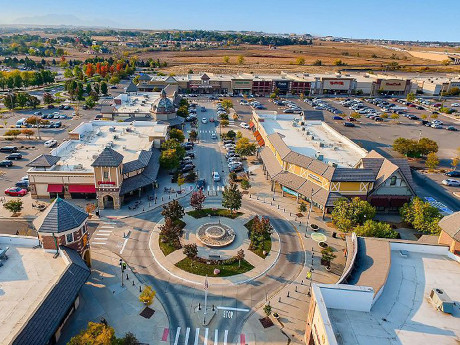— By Tami Lord, Senior Vice President, SRS Real Estate Partners —
No longer the Cowtown of ages past, Denver has developed into an economically diverse, midsized city as demonstrated by both the residential and business growth over the last decade. Major companies now include Denver on their target list for potential headquarters, regional hubs, and distribution locations. Compared to the coastal markets, Denver is more affordable and offers a very desirable quality of life for employees, helping to put Denver on the short list.
The pandemic only increased Denver’s growth trajectory. All of a sudden, people were able to maintain their current employment while living in a setting known for over 300 days of sun annually with easy access to hiking, skiing, biking, camping…the list goes on.
The population growth has spurred rising housing and land prices. Coupled with rising construction costs, increasing real estate taxes, long permitting times and a tight employment market, traditional retail development has slowed. The lack of significant new development has pushed retail vacancy to a near-record low of 4.1 percent across the metro, according to data from CoStar. Many downtown retail markets across the country have been hit with higher vacancy rates in the post-pandemic era, and downtown Denver is no exception, posting a 12.7 percent vacancy rate at the end of the third quarter.
Multiple retailers, entertainment brands, fitness operators and restaurants are competing for quality spaces, keeping rents high but possibly unsustainably so if sales cannot keep up incrementally. Boxes that have been vacant for a while and new vacancies from recent closures such as Bed Bath & Beyond are suddenly in high demand, backfilling with traditional retailers (Floor & Décor, Sprouts Farmers Market, Nordstrom Rack, Michaels), fitness (Vasa, Chuze, Planet Fitness) and entertainment/leisure concepts (Bowlero, Pickup USA, SkyZone).
Retailers expanding in Nevada, Arizona and Texas now look at the greater Denver market sooner rather than later. The more sophisticated retailers no longer pass it by, demonstrated by new entries such as Gucci, Joybird, Boffi, Buck Mason, Veronica Beard, Shinesty, Parachute and Natuzzi Italia (opening spring 2024).
Eatertainment continues to be one of the trends shaping the U.S. retail market, and Denver is no exception. Topgolf, Camp Pickle, Flight Club and Puttshack have all committed to the market. In addition, a few new creation concepts are looking at Colorado as a good test market. The common feedback when discussing the market with their representatives is that the demographic profile of the greater Denver area offers a good mix of what they are looking for, but the rising rents are becoming problematic for new and unproven brands.
Low vacancy and high demand are good for existing centers in the short run, but there is a concerning pause in new development. CoStar estimates that only 6 percent of the current development pipeline is speculative and much of that is a part of mixed-use projects with ground floor retail and where retail is the minority in the overall scope.
In the more traditional suburbs and neighborhoods, developers are seemingly risk-avoidant and are focusing instead on anchored projects, most of which are still a couple of years out. There is demand but speculative multi-tenant and build-to-suits are not penciling. Developers are instead pushing development costs onto the retailer with ground leases as the only offerings.
A perfect example would be the new Runway 35 projects, located at I-70 and Central Park and leased by SRS’ Erik Christopher and Tony Pierangeli. There was high demand from users such as In & Out, Raising Cane’s and PNC Bank that traditionally prefer to purchase but had a void in the area where ground leasing was the only option to plant their flag.
With interest rates and cap rates climbing, investor demand is cooling. The cumulation of these trends is a concern to what is currently a robust market, causing developers and brokers alike to ask if they are creating a barrier to entry that will end a good run.
Is Denver facing a retail storm that it hasn’t experienced in decades? Time will tell, but for the near future and so long as anchors like Costco, King Soopers and Dick’s continue expansion plans, retailers currently in the market and new to market remain bullish on what Colorado has to offer, retail will continue to hold strong.


